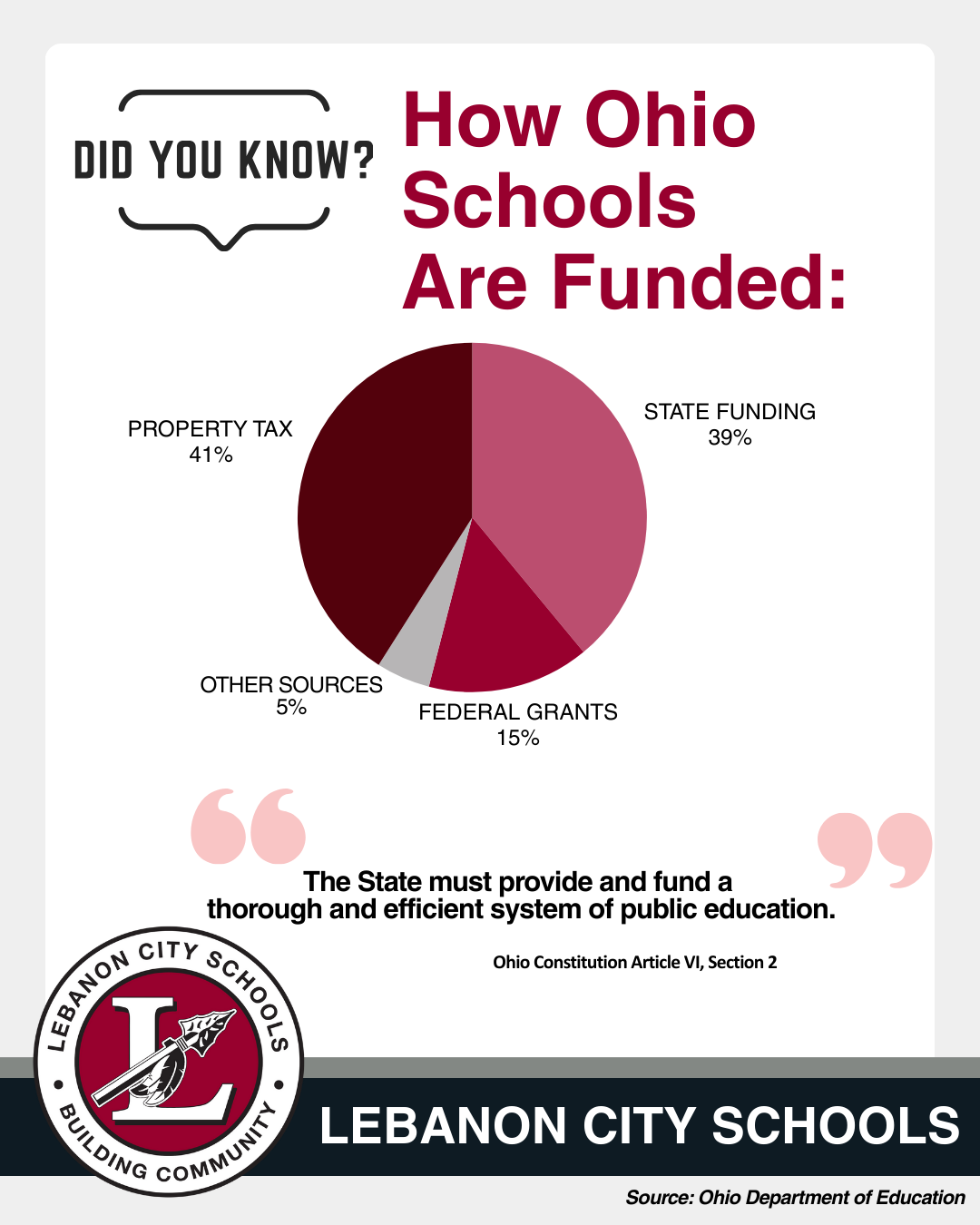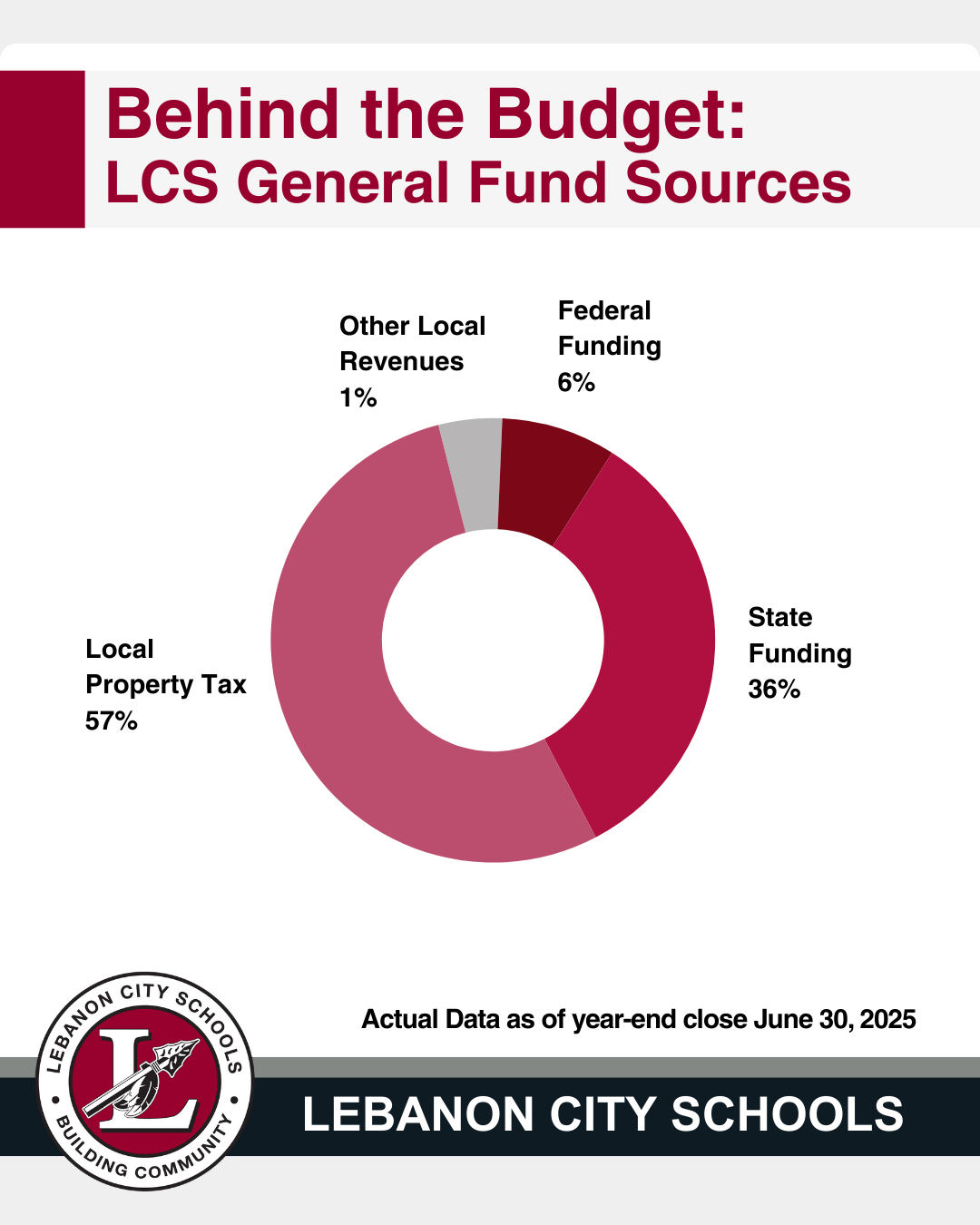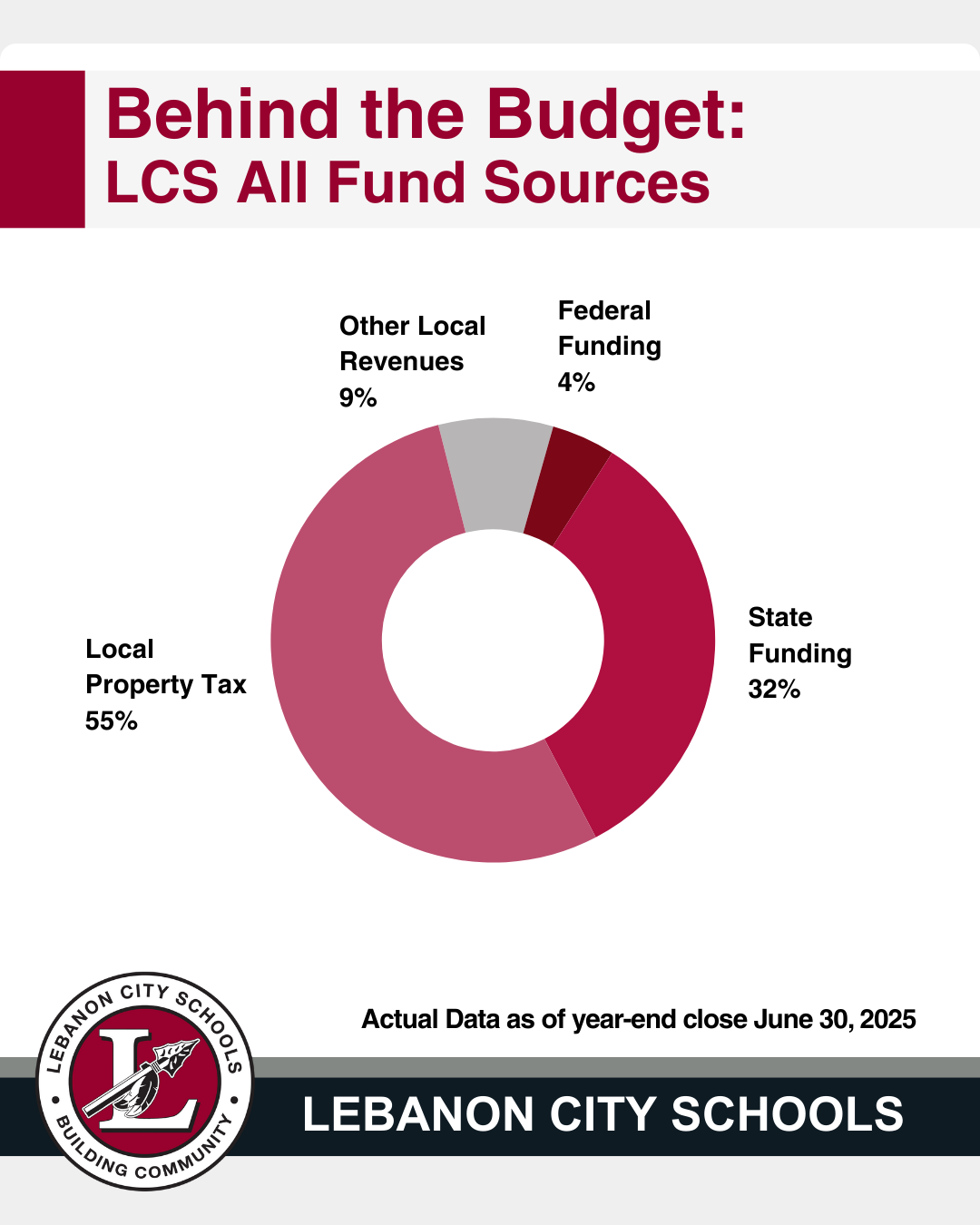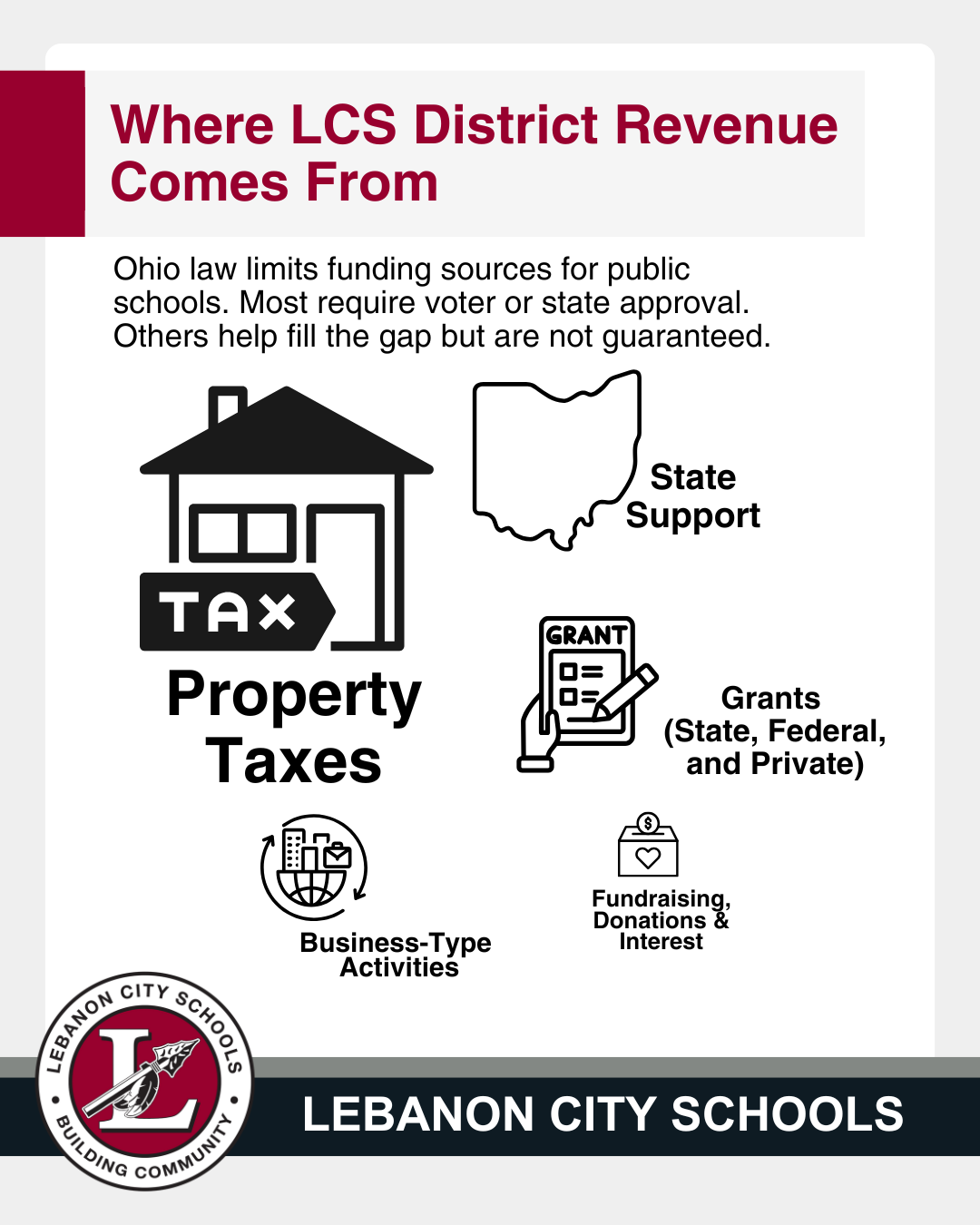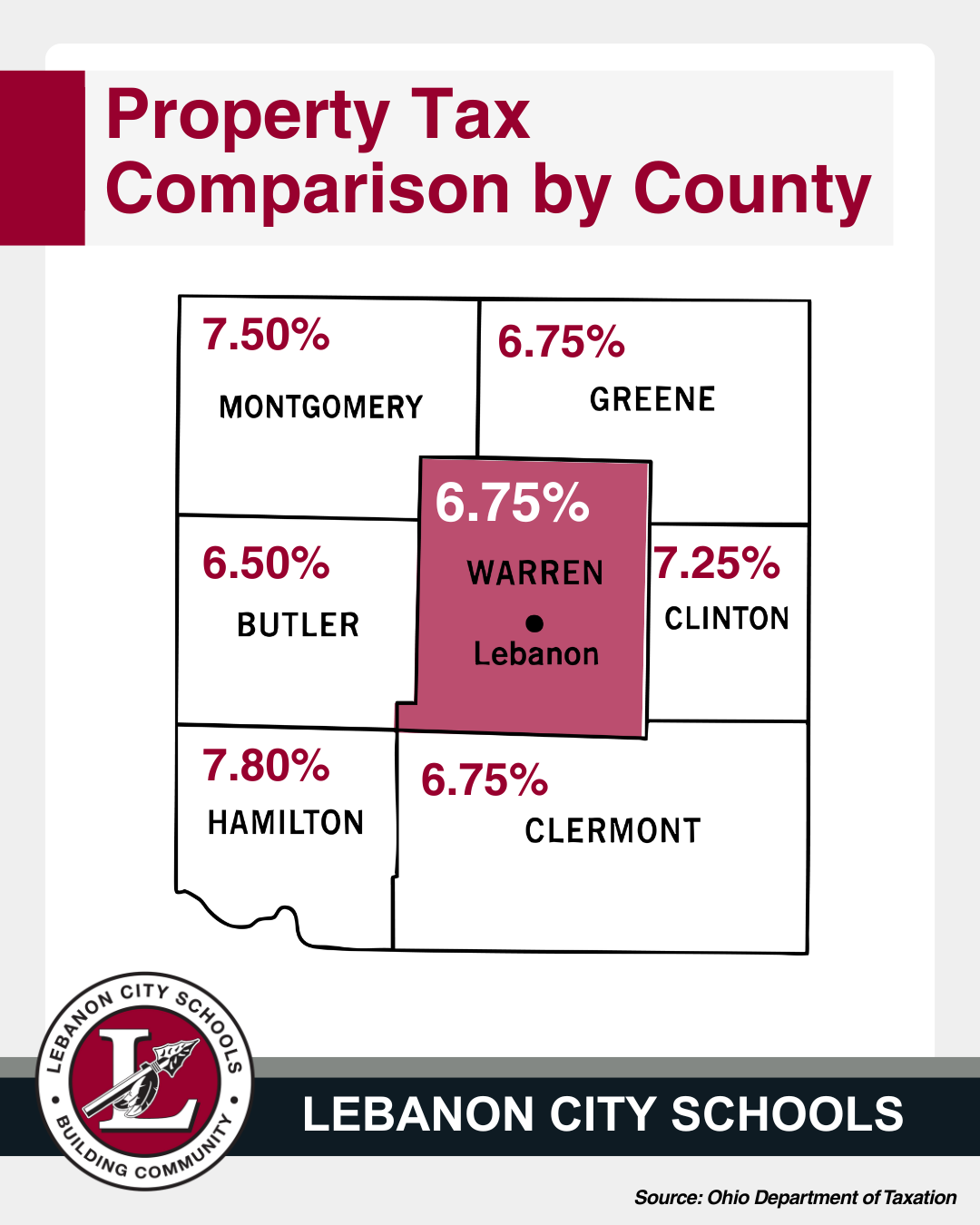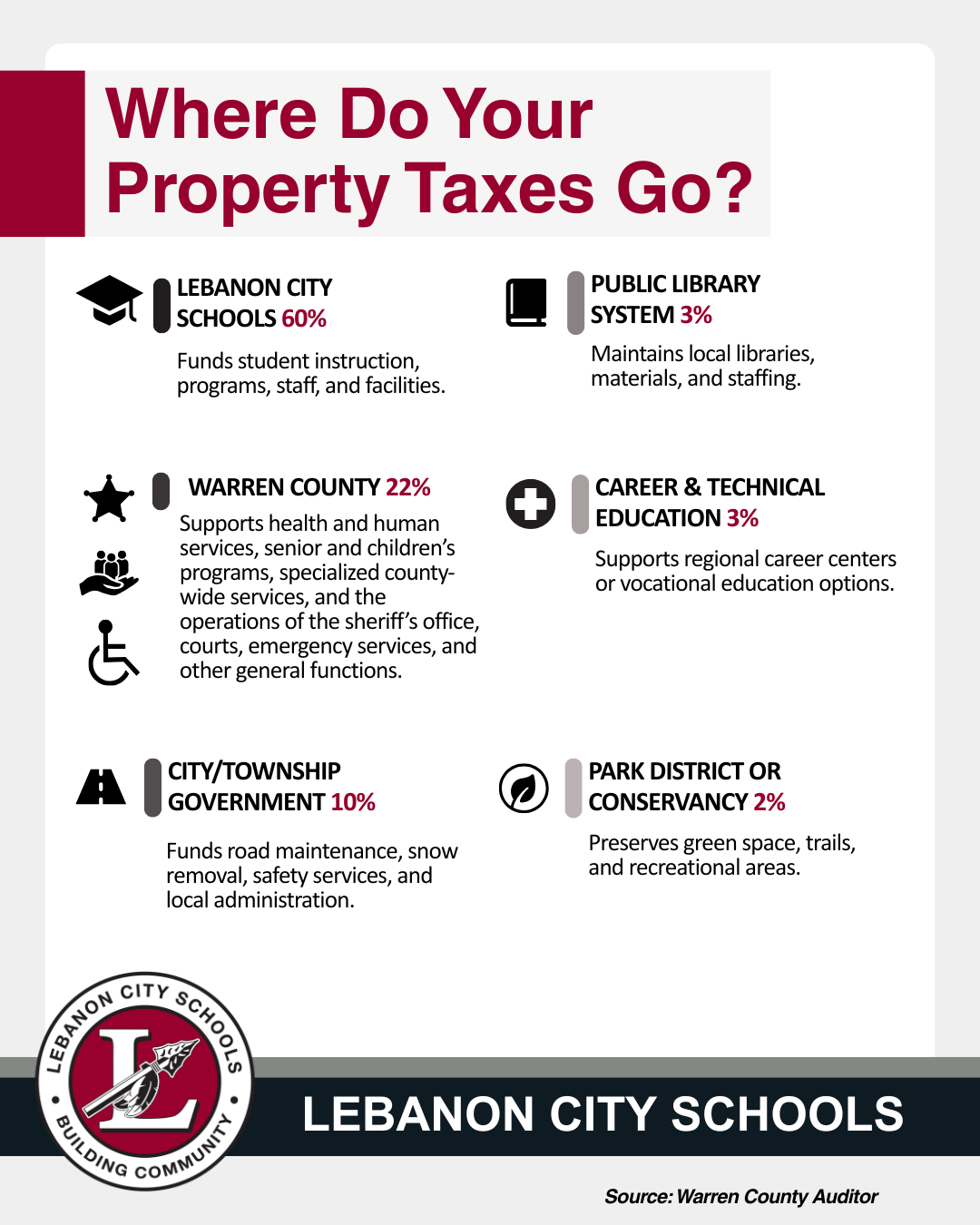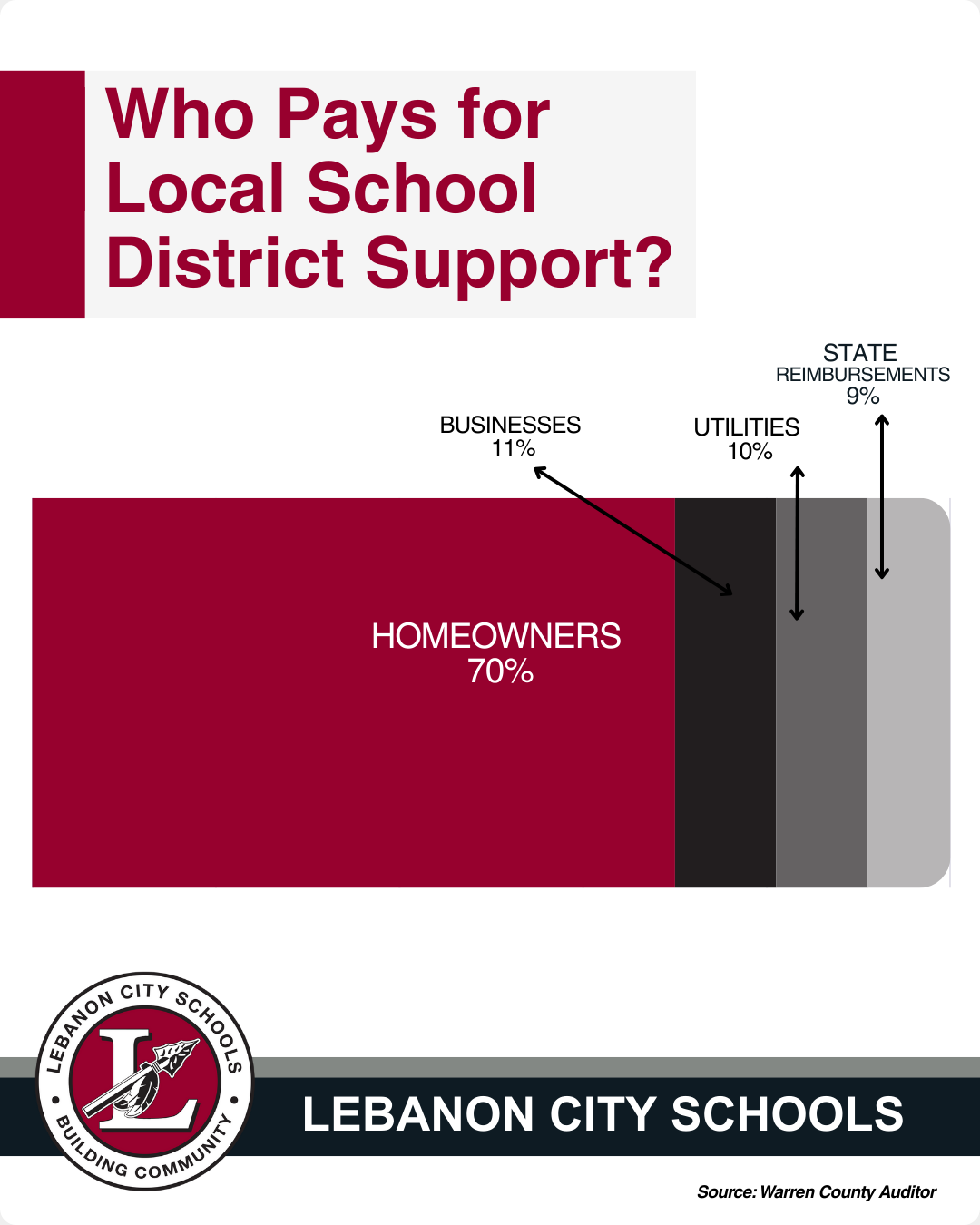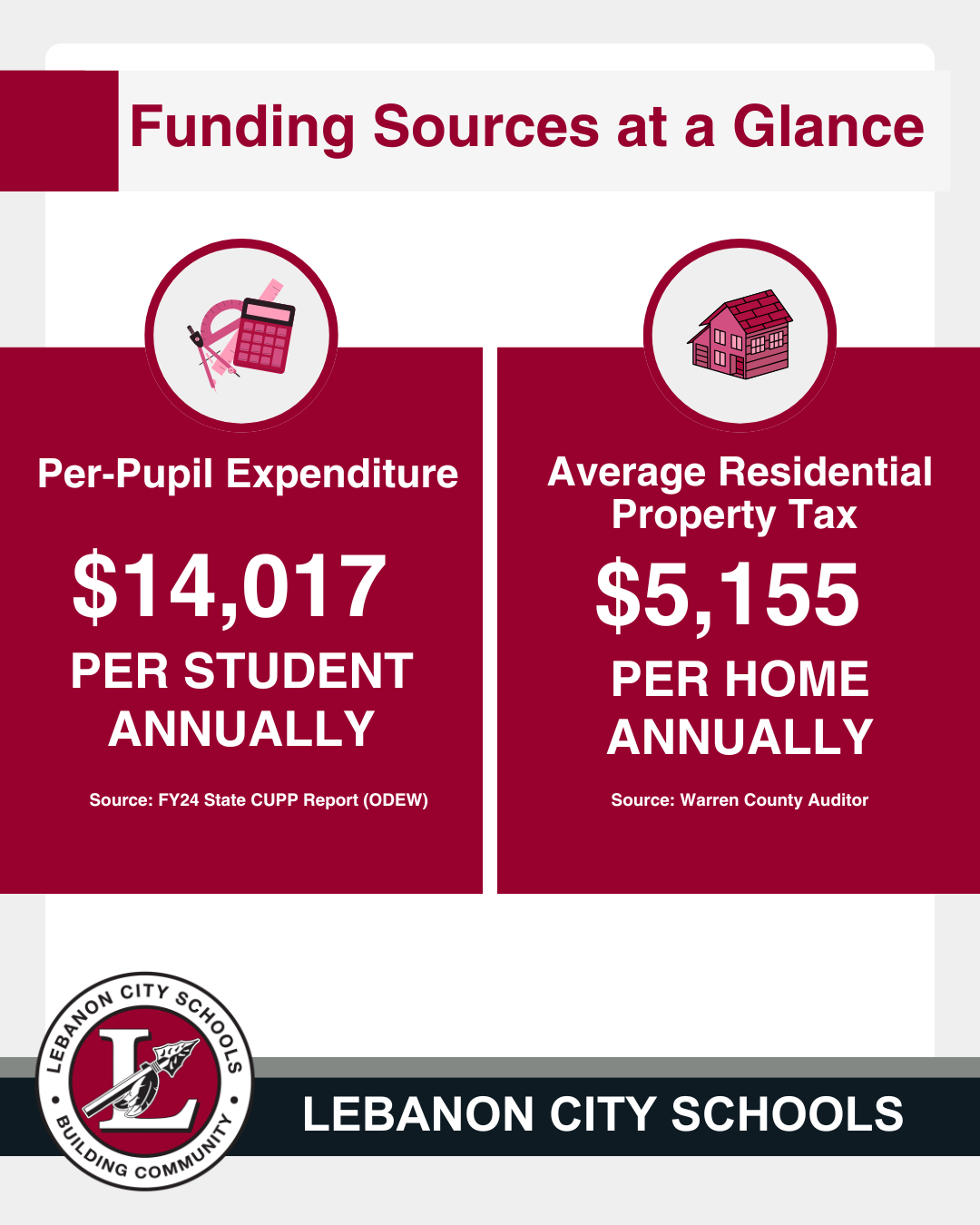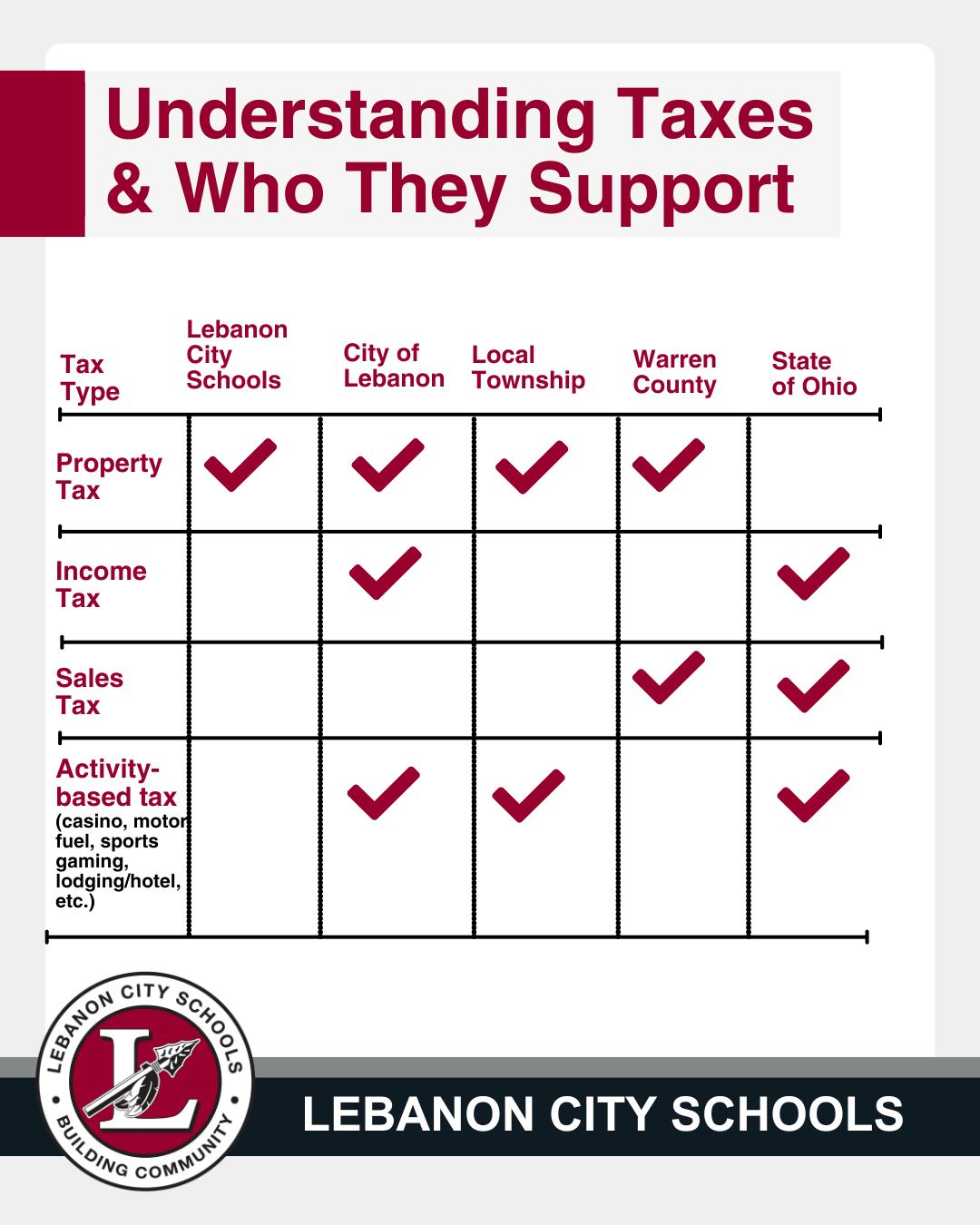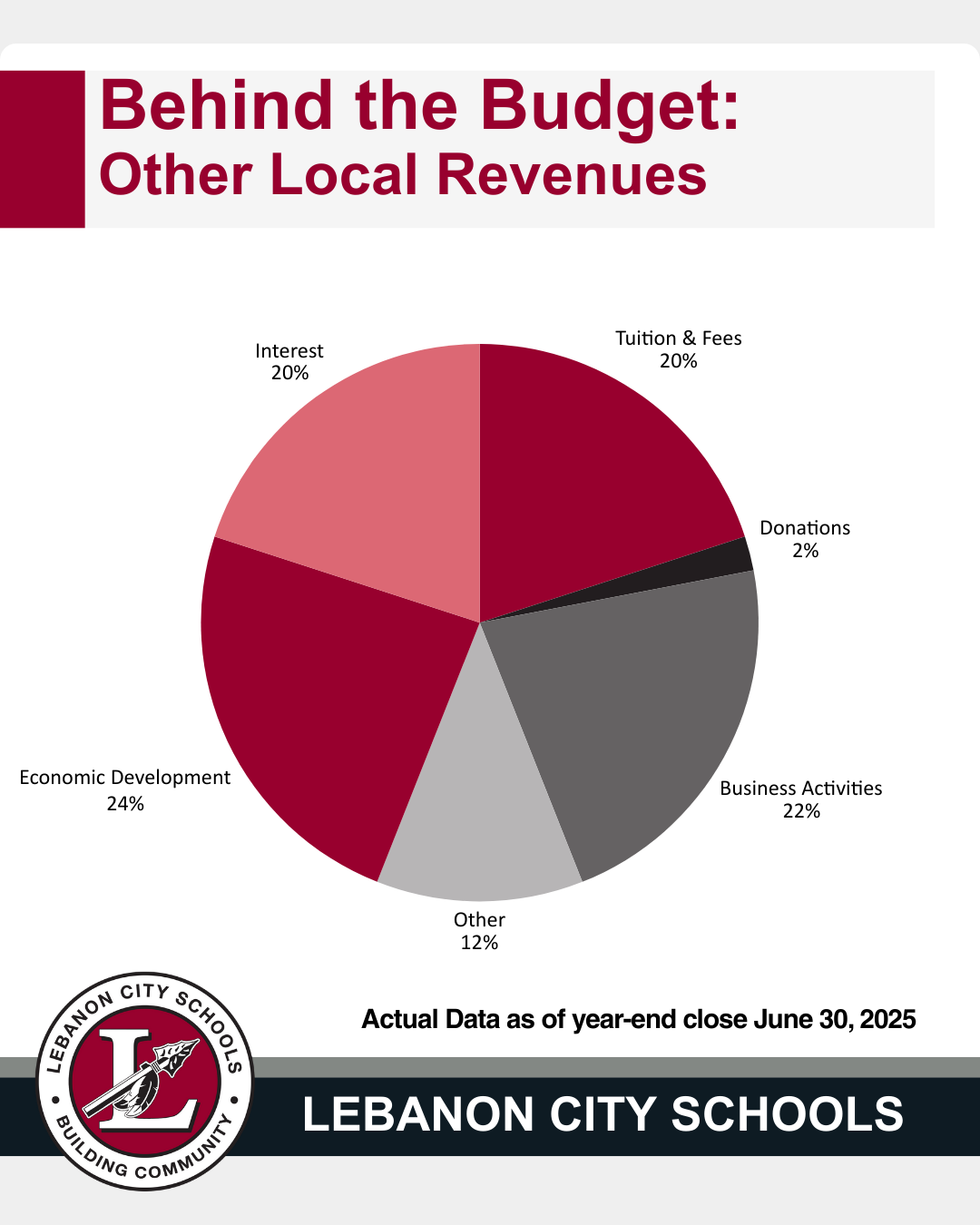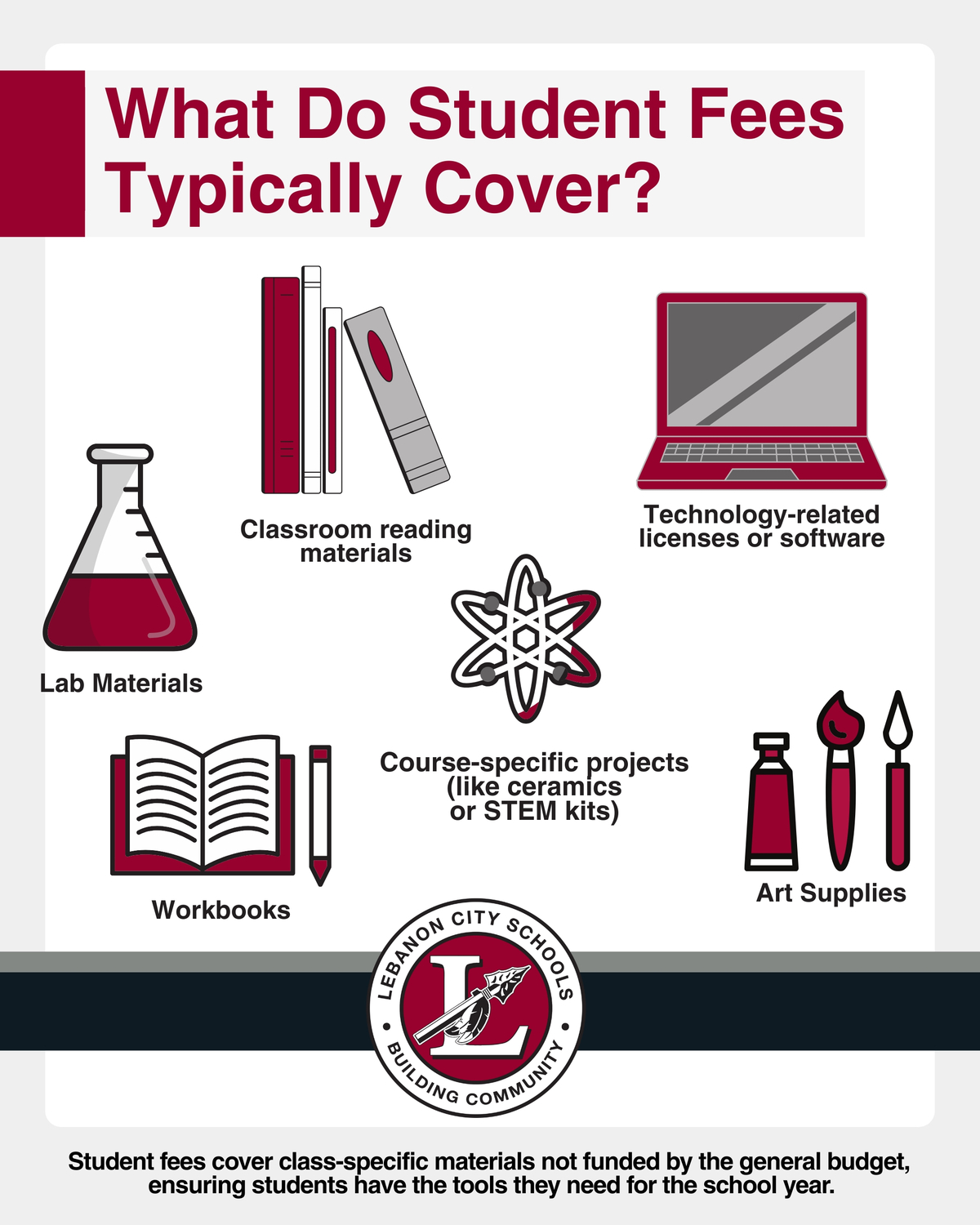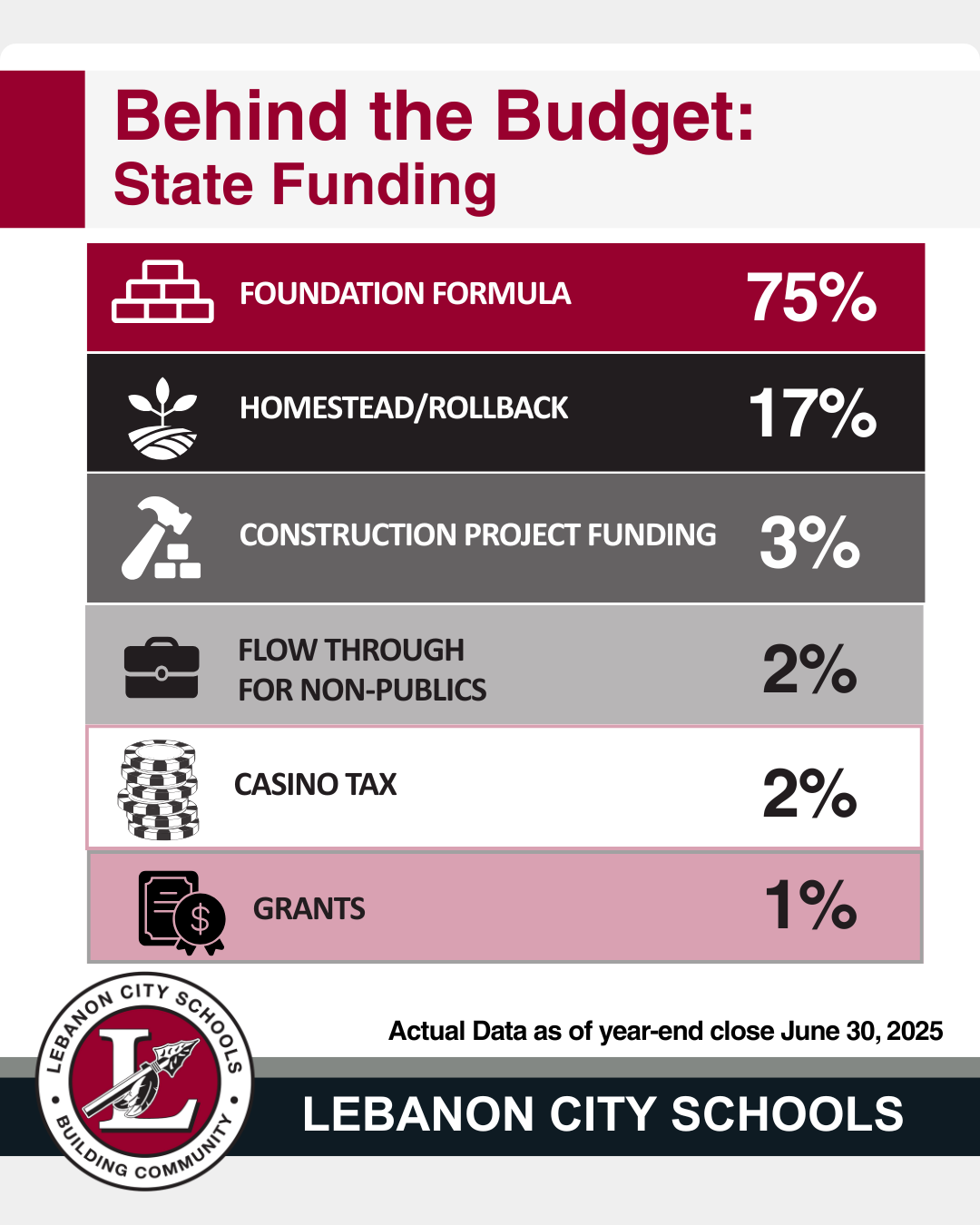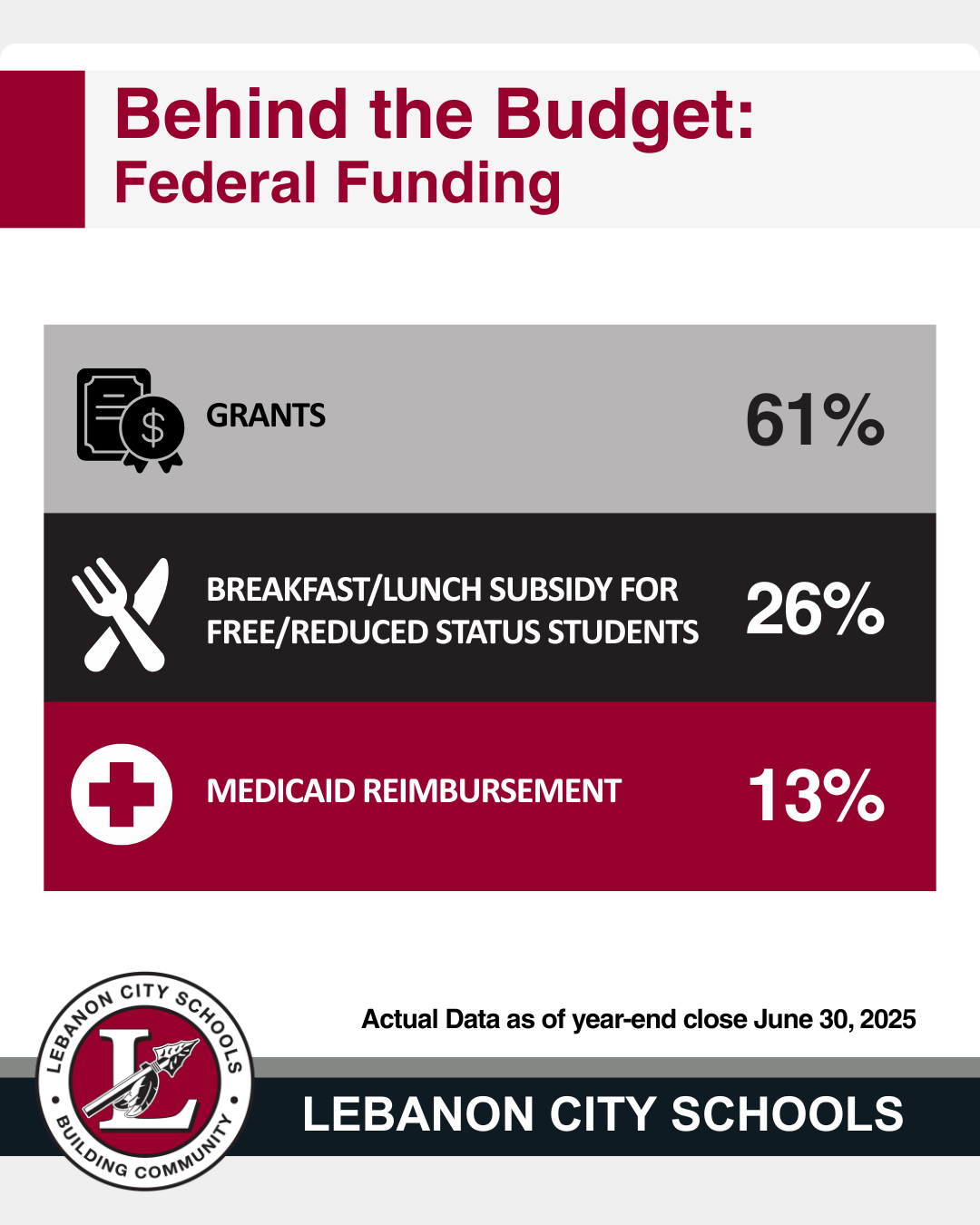Revenues
Keeping You Informed About Our Finances
Infographics explaining Lebanon City Schools' REVENUES:
Property Tax Comparison By County
Lebanon City School District’s primary source of revenue is local property tax collection.
Title 57 of the Ohio Revised Code establishes the system of property taxation in Ohio and sets the rules for how property taxes are levied and applied.
Ohio law authorizes each “taxing district” to collect up to 10 mills of unvoted property tax, also known as “inside millage.” A taxing district is a specific geographical area that can include the county, school district, municipality, and township. Each part of a taxing district receives a portion of property tax collection.
Who Pays for Local School District Support?
Lebanon City School District uses the collection from inside millage to help cover its day-to-day, general operating expenses. Additionally, the Lebanon community has approved the District to collect additional property tax (including a Permanent Improvement levy, a Bond levy, and a Substitute levy) in order to support its local population, needs, goals, and initiatives.
Behind the Budget: State Funding
Ohio’s Fair School Funding Plan was created in response to Ohio’s constitutional requirement to “provide and fund a thorough and efficient system of public education.” The plan sets guidelines for how State and local funds are shared so that all students have a fair opportunity to receive a quality education.
The funding formula is the primary source of State funding for Lebanon City School District. The formula considers:
- Local Capacity - How much the local community can afford to help pay for school operations -This looks at the value of homes, businesses, and income in the district to decide how much the local area can contribute before the State adds more funding.
- Base Costs - The basic amount it takes to educate each student - This covers things like teachers, classrooms, technology, and other everyday needs for running a school.
- Student Needs - Extra help for students who need more support to learn - This includes additional funding for things like special education, English language learning, career-technical programs, and helping students from low-income families.
Continued state support is essential to maintaining the programs and services our students depend on.
Behind the Budget: Federal Funding
Federal funding does not provide as much funding for Lebanon City Schools as local and State sources. However, the services that these funds allow the District to provide are essential for certain targeted programs, including:
- Title I – Support schools with high numbers of low-income students
- Special Education Grants – Provides funding to help meet the additional needs of students with disabilities
- Nutrition Programs – Provides funding for free and reduced-price school meals
- Medicaid Reimbursements – Provides funding to support appropriate medical/social services for qualifying families

